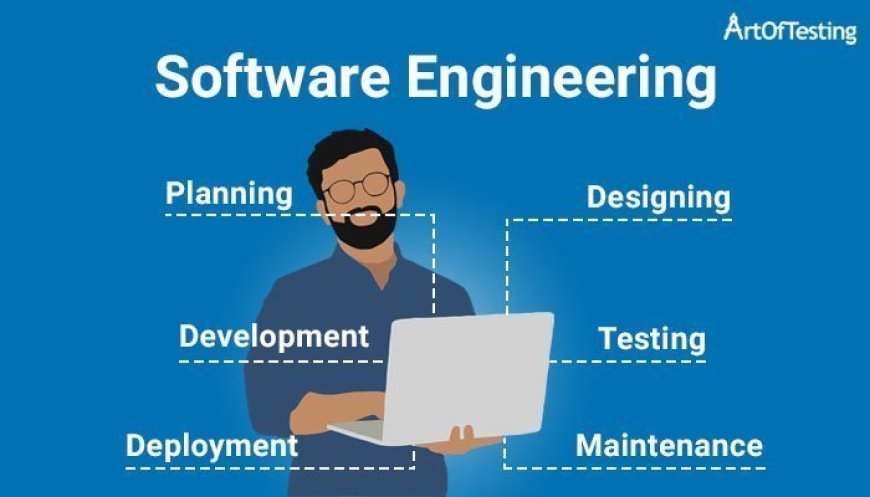How to Become a Software Engineer in 2025: Step-by-Step Guide for Beginners
Learn how to become a software engineer with this step-by-step guide covering skills, education, career paths, and job preparation.

Software engineering is one of the most sought-after careers in the digital age. With the rapid growth of technology across industries, skilled software engineers are in high demand. If you're interested in building software, solving complex problems, and working with the latest tech tools, this guide will help you get started on the right path.
1. Understand the Role of a Software Engineer
Software engineers design, develop, test, and maintain software systems. They may work on websites, mobile apps, desktop software, or enterprise-level systems. The role requires strong analytical skills, attention to detail, and the ability to write efficient code.
2. Choose a Learning Path
There are several ways to learn software engineering:
-
University Degree: A bachelor's degree in computer science or software engineering provides a solid academic foundation.
-
Coding Bootcamps: Short-term, intensive programs that focus on practical coding skills.
-
Self-Taught: Using online courses, tutorials, and books to build knowledge independently.
The path you choose depends on your time, budget, and learning style.
3. Learn Programming Languages
To become a software engineer, you must learn programming languages. Start with beginner-friendly languages like:
-
Python widely used in web development and data science
-
JavaScript essential for front-end and full-stack web development
-
Java common in enterprise applications
-
C++ or C# often used in game development and systems programming
Focus on mastering one language before moving to others.
4. Build Real-World Projects
Creating real-world projects helps you apply your knowledge and build a portfolio. Try developing websites, mobile apps, or contributing to open-source projects. These hands-on experiences demonstrate your capabilities to potential employers.
5. Gain Experience Through Internships
Internships, freelance projects, or part-time jobs can provide valuable work experience. They also help you learn how to collaborate in teams and work with tools like Git, Jira, and Agile methodologies.
6. Prepare for Job Interviews
Most software engineering interviews involve technical assessments, coding challenges, and problem-solving questions. Practice regularly on platforms like LeetCode and HackerRank to improve your skills and confidence.
7. Stay Updated
Technology changes fast. Follow industry news, attend webinars, read blogs, and take advanced courses to keep up with trends and improve your expertise.
For a complete and detailed step-by-step process, check out this helpful guide on how to become a software engineer.
Conclusion
Becoming a software engineer takes time, practice, and continuous learning. Whether you follow a formal education path or take a self-taught route, consistency and passion for coding are key to success in this dynamic field.






































